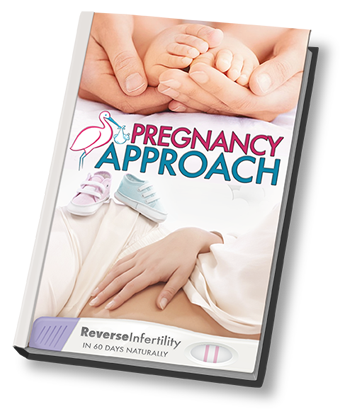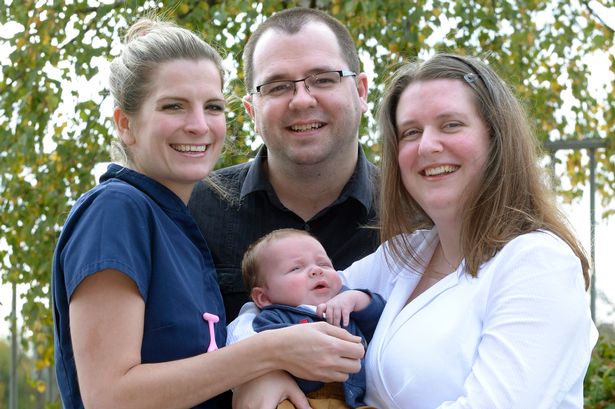Getting pregnant is actually quite difficult. In fact, there’s only about a 15 to 20 percent chance you’ll conceive each month, even when you’re actively trying. That means that for many couples, seeing a fertility specialist is an essential part of the baby-making process.
“People are always surprised to hear how bad humans are at reproducing,” Alan B. Copperman, M.D., director of the division of reproductive endocrinology and infertility at Mount Sinai Hospital and medical director of Reproductive Medicine Associates of New York, tells SELF. But the reality is that “it’s not as easy as people think, and often takes longer than you think.” Sometimes you need patience. Sometimes you need help. That’s where a fertility specialist enters the picture.
“Seeing a specialist may help you get the information you need up front to be proactive and get the appropriate treatment quickly,” Tina Koopersmith, M.D., founder of West Coast Women’s Reproductive Center, tells SELF. It can be more time efficient to address potential problems before they arise, and for many, seeing a specialist may just provide some reassurance. “It’s not a big deal to get a consult,” Copperman says.
Whether you’ve been having trouble getting pregnant or are just starting to try, here are some good reasons to see a fertility specialist for an evaluation.
1. You’ve been trying for over a year (or 6 months if you’re 35 or older).
The standard recommendation is that if you’re under 35 and have been trying unsuccessfully for a year, it’s a good idea to get a fertility workup. “If you’re over 35, then you should be in a fertility specialist’s office after 6 months,” Copperman says. “The doctor can determine if eggs are OK, if sperm is normal, if the uterus is normal, if the tubes are open,” he explains. After assessing you and your partner, they can recommend whether it’s worth trying a bit longer, or if a targeted treatment or an assisted reproductive technology (like IVF) is the next best step.
2. You’ve been diagnosed with cancer.
“Any woman diagnosed with cancer (even a child) that is about to have treatments should be offered a consult with a fertility specialist,” Koopersmith says. This goes for any woman, even if it’s not a cancer in the reproductive system. “Different cancer treatments have different long-term effects of women’s fertility,” she explains. Each person’s individual case is different, so it’s important to discuss with your oncologist and a fertility specialist what your options are for preserving fertility throughout cancer treatment. This could include things like freezing your eggs or embryos before treatment, freezing ovarian tissue, or even moving the ovaries away from areas of radiation. “Having this consult helps a woman have some control over a future that otherwise seems very much out of her control.”
3. You have really painful or irregular periods.
This could be a sign of an ovulatory disorder. The most common is PCOS, a hormonal condition that interrupts ovulation and makes periods painful, irregular, and some months, completely nonexistent. Malfunctioning in the part of the brain called the hypothalamus or the pituitary gland, or problems with the follicles on the ovaries, can all get in the way of proper ovulation. Though it’s rare, premature menopause can cause some women to stop ovulating before the normal age of menopause. Copperman says there are so many other things that can cause you to not ovulate, such as “too low or high BMI, medications that alter fertility, or problems with the thyroidor prolactin.”
While ovulatory disorders are the most common cause of infertility, about 70 percent of these cases can be treated with medication.
4. You’ve had pelvic inflammatory disease.
PID is an infection of the uterus or fallopian tubes (sometimes ovaries, too). The most common cause is an STI like gonorrhea or chlamydia—both typically present without symptoms, and if they’re left untreated, can lead to PID and permanent damage to the reproductive organs. As SELF has previously reported, infections cause inflammation that can lead to scarring. Scarring can interrupt ovulation, or simply physically block the fallopian tubes and prevent a sperm and egg from meeting.
5. You’ve had multiple pelvic surgeries or procedures done on your reproductive organs.
Besides infections and inflammation, scarring can also be caused by repeated removal of ovarian cysts, multiple ectopic pregnancies, or other invasive surgeries that leave scar tissue in the reproductive tract. The more procedures you’ve had done, the higher the risk of scar tissue buildup that may inhibit fertility.
6. You have endometriosis.
Another big cause of scarring is endometriosis. “If a woman has had a long history of endometriosis or adhesions/scar tissue in her pelvis she may want to talk to a specialist before trying or soon after trying,” Koopersmith says. Similarly to PID, the adhesions and scar tissue that can build up as a result of endometriosis can impact fertility. Treatments and outcomes vary greatly, but for many people, removing scar tissue can improve pregnancy outcomes, especially when paired with fertility treatments like IVF.
7. You’re over 40.
“A woman over 40 might want a consult to discuss the options and issues she may face,” before trying to get pregnant Koopersmith says. As SELF has previous reported, the older a woman gets, the greater chance her eggs will contain chromosomal abnormalities, which can result in miscarriage or the baby having a serious condition like Down Syndrome. If you’re over 40 and want to conceive, it’s not off the table, but seeing a fertility specialist will help you assess your risk and explore alternatives for starting a family.
8. A genetic condition runs in your family.
“If there is a history of genetic conditions that may be passed down through genes then it is best to consult a specialist,” says Koopersmith. Preconception genetic counseling can give a couple a clear view of whether they carry the genetic mutation for a specific condition, and what the chances are of passing it along to their offspring. If there is a risk, a fertility specialist can speak about the options a couple has, including IVF paired with preimplantation genetic screening to select an embryo that doesn’t have the mutation.



